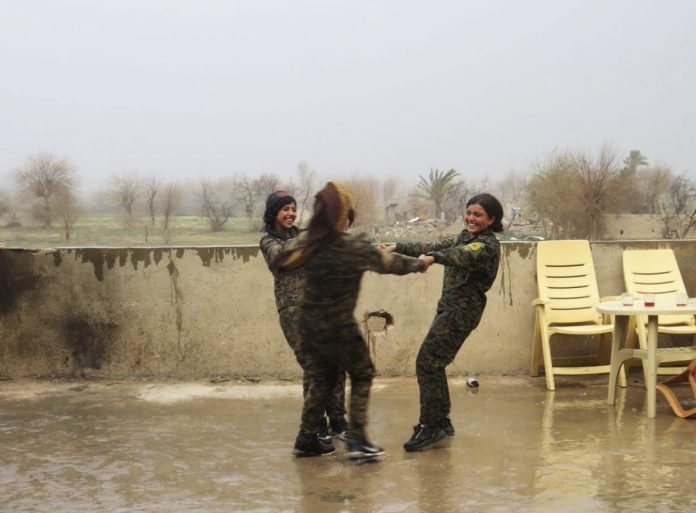For a while now I’ve followed the instagram account woman_life_freedom . She is a journalist currently in Rojava, Syria. I’ve loved her work as it gives a fantastic look into the cultural/societal aspects of not just Rojava, but also Syria and even the Middle East at large. Her work is truly incredible, and so I want to support her mission. I was able to ask her a number of questions, her answers to which I will share with you below.
Firstly, as my goal is to help support her work, you can follow her on instagram @ woman_life_freedom , and support her financially on patreon:
https://www.patreon.com/woman_life_freedom
My first Question was, “why Rojava?” Many in the world overlook the region and so I was curious as to why she found herself there.
“I think that in general the region of the Middle East is of critical importance for geopolitics at the present time. In the northeast of Syria and in Rojava, all possible forces and groups are concentrated: here the Russian military contingent, the military contingent of the United States and other countries of the Global Coalition, Hezbollah, ISIS, FSA, Jebhat an-Nusra, all sorts of groups whose names no one remembers, but which are fighting each other and terrify the population. There are a lot of peoples and followers of various faiths here, which have huge contradictions with each other. Well, in the midst of all this, the Kurds are declaring a revolution, proclaiming the construction of direct democracy and the liberation of women. Of course it’s wow. Of course, it interested me. I wanted to know more about what is going on here. I have lived in some countries of the Middle East before, but I have not seen anything like what is happening here.
Well, and then, after some time of living in northeastern Syria, my connection with this place became more personal, and not just solidarity. I mean, I made friends here, I lost friends here, I risked my life here for others, and others risked their lives here for me. In short, this is something more than just solidarity.”
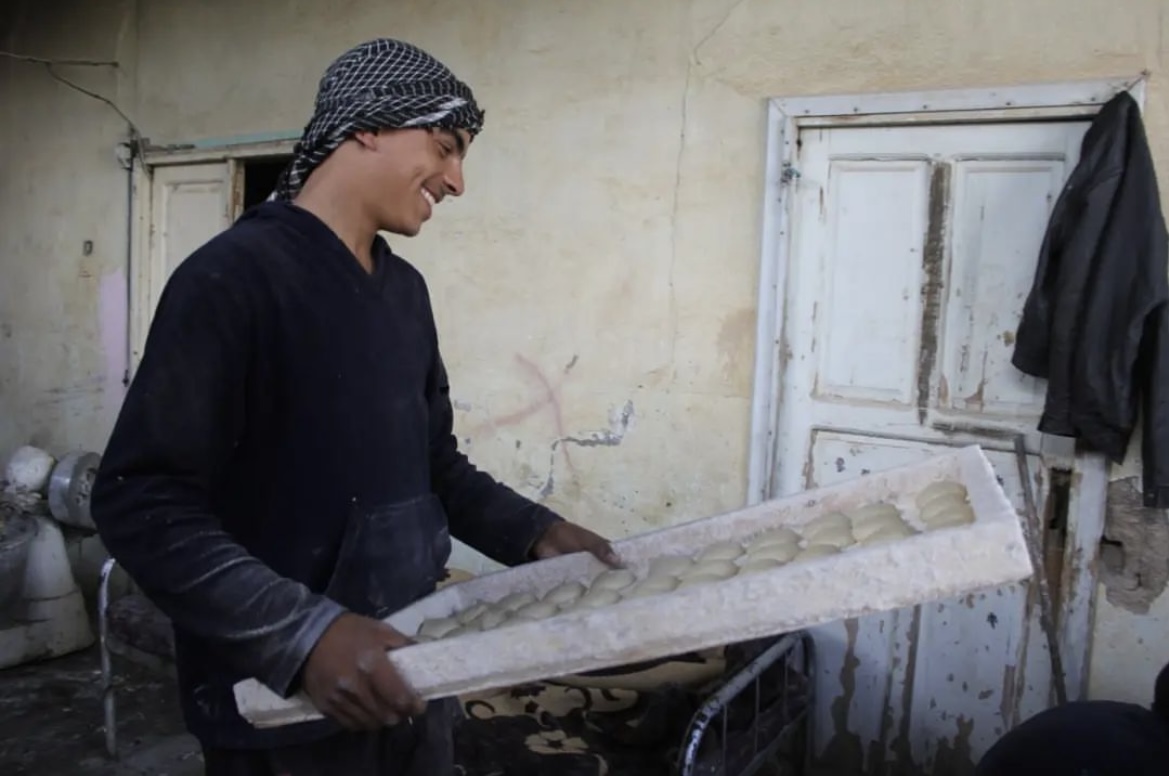
As we’ve all seen, for the last number of years Turkey has made several advancements into Northern Syria. Thousands upon thousands have been displaced, and many also killed. In order to help combat Turkish advancements, some Kurdish groups have announced their intention to cooperate with the Assad Regime. I asked her how people felt about these agreements.
“In general, the cooperation agreement with the SDF and the Syrian regime has been in effect since the end of 2019, when Turkey occupied Tel Abyad and Serekaniye. Then the SDF, under an agreement mediated by Russia and the United States, withdrew its troops to a depth of 30 km from the border with Turkey, and the army of the Syrian regime came to their positions. This is not a new agreement.
The population and the Kurds, and especially many Arabs, were not happy with this agreement, but they do not have much choice. These were the conditions for a ceasefire by Turkey and its mercenaries. In addition, it is the duty of the Syrian regime to defend its territories.
People are terrified that the Syrian regime can come back. They know what will come after this: huge repressions, ISIS insurgency etc.”
One thing that really piqued my interest about her answer was the belief that ISIS will resurge under the Syrian government. I asked her why people believe this.
“Because the Syrian regime is not able to fight with ISIS. It wasn’t able all these years. Now Assad has Russian fighter aircrafts but ISIS anyway kick the regime soldier’s asses. There is almost every day attacks and ambushes against the Syrian army in some parts of Syria.”
One of the things that interests me the most about her work is her mentioning of taboo topics within Syrian society. I asked about both LGBT people as well as women’s standings.
“For the LGBT I doubt that it is much better. Because LGBT people like don’t exist here.
Nobody talks about them. It seems that even though there is a proclaimed women’s revolution and a struggle against patriarchy, but so far, even at some superficial level, no one officially even mentions that LGBTQ people live here, fight here, and so on.
I think it’s because society doesn’t change much here, if you know what I mean. Here is a very conservative society and no matter how quickly it can change as a whole, regardless of whether the Syrian regime is here or the revolutionary groups are in power.
It doesn’t matter who is in power, the society is very conservative here.”
And pertaining to women:
“There are some changes here. Women here, for example, can hold high positions in politics, and especially in the military sphere there are a lot of women commanders. But I would not say that this is an indicator of women’s freedom. Yes, it’s hard to imagine a woman commander in the Syrian army now, who, moreover, also fights on an equal footing with men. But, as I said, the society here is the same as before. There are very big problems with women’s rights. The Autonomous administration is trying to change society, trying to introduce new principles of women’s freedom, women’s rights, but all this is at the initial level, because the society is simply very conservative and in order to change it, several generations must change.”
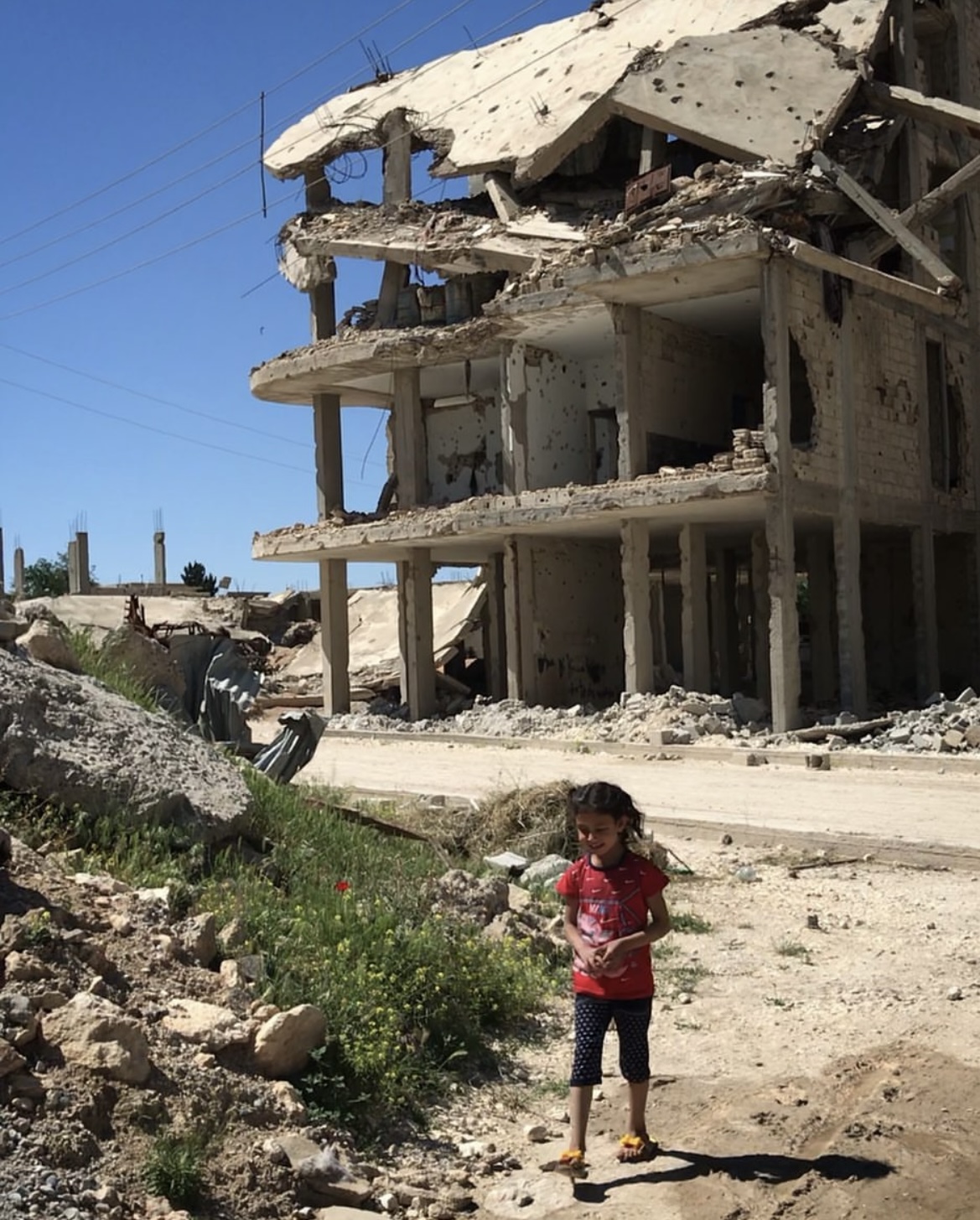
For a little bit now, Turkey has been saying they will renew their offensive into Syria. This was met with incredibly large protests which have contributed to the operations delay. It is worth mentioning that reports about a week and a half ago that operations had resumed were fake, operations did not resume. I asked her about the effect that impending invasion has on the people of Rojava.
“Well, in general, the situation in northeastern Syria is very difficult. Life here is really hard. There is a severe economic crisis here, but not the same, of course, as in the rest of Syria. In addition, there are a huge number of refugees, people who can barely make ends meet. This whole crisis of recent years is largely due to the Caesar law imposed against the Syrian regime. And Rojava, like the entire region of northeastern Syria, is economically dependent on Syria. Besides, just imagine: hundreds of thousands of people lost everything because of the Turkish invasion, first in Afrin, then in other parts of Syria. They live in the most difficult conditions, repelling the attacks of the second most powerful army of NATO and its mercenaries. Don’t forget about ISIS. Yes, ISIS still exists. Earlier this year, ISIS attempted to capture the city of Hasaka, but the SDF successfully repelled the attack. In addition, tens of thousands of ISIS fighters and their families are being held in camps and prisons in northeastern Syria. I describe all this in such detail to you, but imagine how many resources go into deterring ISIS. And after all, these resources could be used to restore cities and normal life in the region. Oh yes! I completely forgot, Turkey blocks the waters of the Euphrates, so the region has no water and because of this there are problems with electricity. Well, that is, roughly speaking, all the water sources here have dried up, due to the fact that Turkey blocks the waters of the river entering the region.
People are tired of constant wars here. Turkey has not yet officially announced a military operation here again, but we have real terror from Turkey. I just don’t know what to call attacks on civilian objects and infrastructure. We recently buried two children who died due to a strike from a Turkish UAV. Here, though, Turkey does not seem to allow people to live in peace. If Turkey starts a military operation, there will be even more refugees. Neither the Arabs, nor the Kurds, nor the Assyrians, nor the Armenians living in the region will remain in the region if Turkey again occupies the territories. Nobody wants to live under Turkish occupation, people are very afraid of it. Even the Arabs, whom, as it were, usually no one remembers in the context of Turkish attacks. But just a small fact: in the territories occupied by Turkey, all Arab children learn Turkish in schools and all subjects are in Turkish. The Arabs do not want this assimilation either.”
Oftentimes we only see the very worst of the Turkish strikes, if we ever see them at all. This may lead you to believe that Turkey only attacks occasionally, but this is far from the truth. I asked “How often does Turkey attack? Daily?”
“Yes, every day, a lot. Shelling all the frontline and also using UAVs inside cities
Just that since the beginning of August 15 people died because of the attacks, 2 of them children and it continues. Dozens civilians are heavily injured every day.
I mean that’s a lot considering the fact that we have officially a ceasefire”
It is worth mentioning this interview was on August 15th, the death toll from Turkish strikes has risen since.
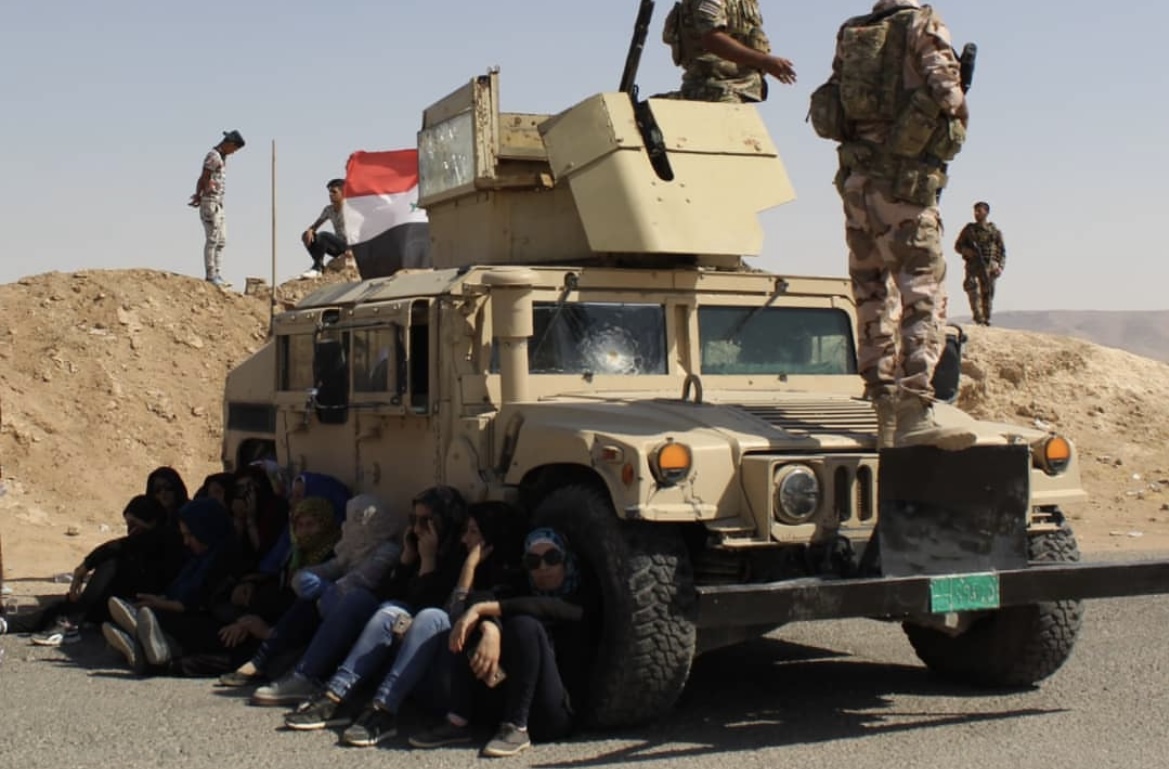
I asked what the Kurdish revolutionaries hope to achieve.
“They want to have democracy, implement their project of the democratic confederalism. They don’t want a great Kurdistan as a state, but just an autonomy where can be more democratic government.”
Going back to the potential invasion, I was curious as to how people prepare for such a thing.
“They dig tunnels, build shelters, roofs over the streets to reduce the visibility of movements from Turkish UAVs (but not everywhere). In addition, constant training in the use of weapons among the civilian population are carried out.
But I do look at it realistically. Even though the tunnels in some cities are very large and good, I really do not believe that without proper weapons and unenclosed airspace, people here will be able to give a really long rebuff to the second most powerful NATO army, which is the Turkish army. The SDF does not even have a share of what the regular armies have, for example, they did not have and do not have what Ukraine has even without the incoming aid and lend-lease to Ukraine now.
And imagine, here the war has been going on for more than a decade. People are tired, they have not seen the world for a very long time. Many people became refugees several times, because, having found a new home, they always lost it due to new wars.
Maybe if they closed the airspace, the SDF could not only repel Turkish attacks, but also de-occupy the territories. But when the enemy completely controls the sky, it is very difficult to do this in modern warfare.”
On her instagram she has repeatedly mentioned varying faiths, going into detail on something in the west you will never hear of. We in the west view Syria as an Islamic country, though they are majority Islamic, it is clear that is not the whole truth. I asked her about the religious composition of Syria.
“Most are Muslims, but within Islam itself there are many differences. There are Sunnis and Shiites, and they do not like each other. I don’t know if it’s worth going into it? There are really a lot of different Muslims. There are Kurds, Kurds are also Muslims, but they have a lot of their own traditions in their culture, which are very different from those traditions that, for example, the Arabs have. In addition, there are also Christians in the region. There used to be more Christians, but after the start of the war, they left. And if the Armenians, for example, can repatriate to Armenia, then the Assyrians are forced to flee to European countries, many went to Australia. That is, the Assyrians, who, in principle, have no other homeland than Syria, they were forced to leave their home and flee as far as Australia. There are Yezidis, this is not Christianity or Islam at all. This is a separate religion, dating back to Zoroastrianism. There are Druze, many of them do not consider themselves Muslims either. I cannot say the percentage of Christians, Muslims and other religions, because it is generally very difficult to collect any statistics here.”
Syria holds within it a ton of foreign players. Two of the most influential nations, the US and Russia, have not only a troop presence but several groups they cooperate with. I assumed one may be more supported than the other, but I was wrong. I asked her if one was more supported.
“Ooo no, no, no. People here remember very well how Russia gave Efrin to Turkey. And they remember how USA gave to Turkey Serekaniye and Tel Abyad. Believe me, locals don’t trust to anyone.”
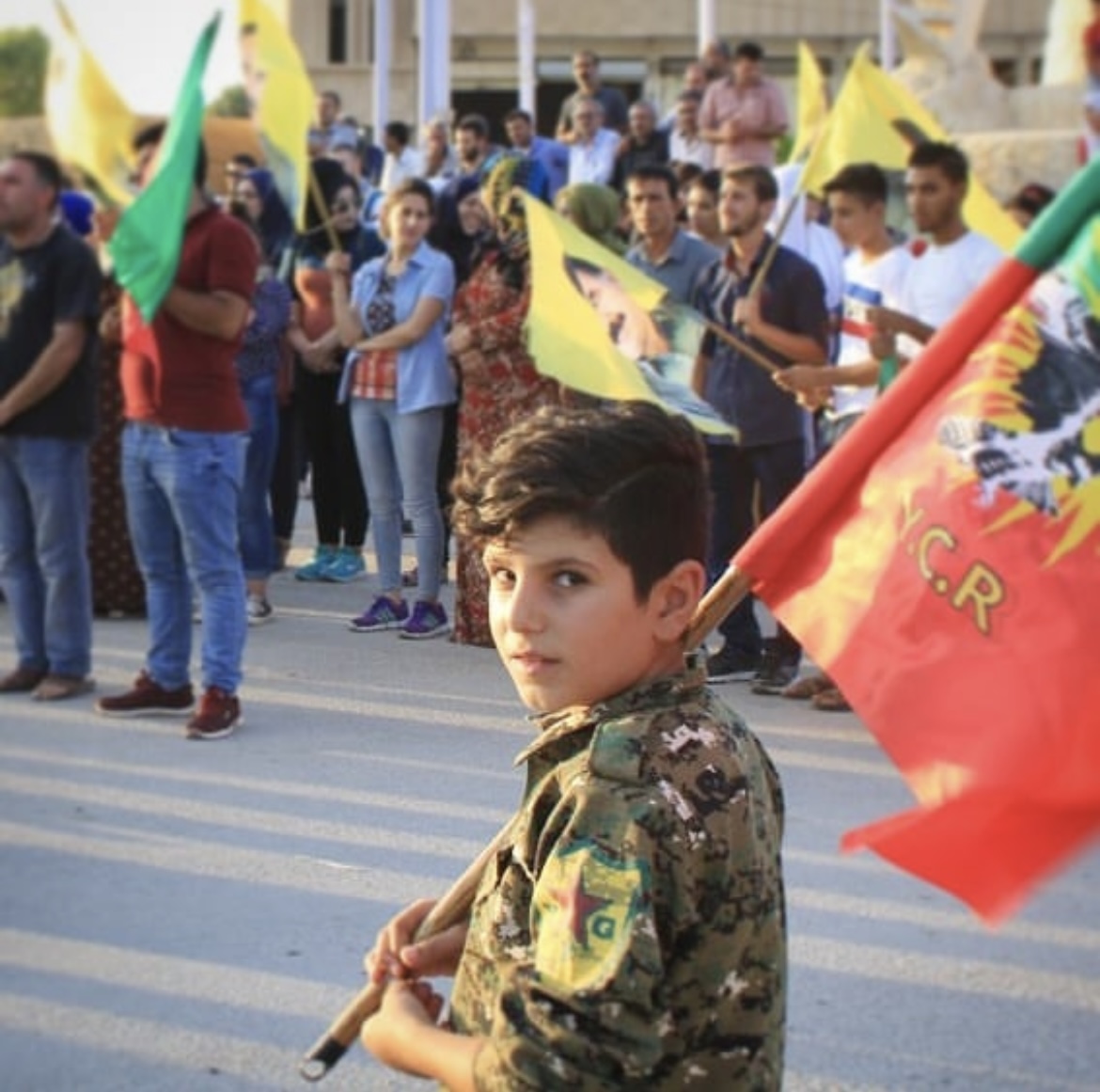
Syria is also influenced by Iran. A lesser force on the international stage than the US or Russia, but still a strong regional power who holds much sway throughout the ME. I asked her what role Iran plays.
“Well, there is a war between Iran and Israel. Syria is a strategically important ally for Iran in this war, because, for example, Iran trains its fighters here. Pro-Iranian militants are fighting here on different fronts. Syria is generally a sphere of influence for Iran, and Iran plays a big role, including in diplomatic relations. But all this applies to Syria and the Syrian regime. But everything that happens to Syria as a whole plays a big role in the region of northeast Syria.”
And finally, what can we do? Syria seems so far away, so I asked how a foreigner can help.
“The best way is to spread information about what is happening here because lives of the people here is in the hand of the governments of other foreigner countries. So if you live for example in one of the countries that plays here a big role, it would be good to make some protests at least and make pressure on the government. Also foreigners can come here and be medics here, we really need medics.”
All in all, the story of Rojava is far from over. The plight of Kurdish revolutionaries on-going, and Turkish invasion still looms over the region. Remember the people of Syria both in your prayers and in mind and heart.
A massive thank you to woman_life_freedom for lending me her time and her words.
-Written by GoodHistory Contributor Sebastien G


